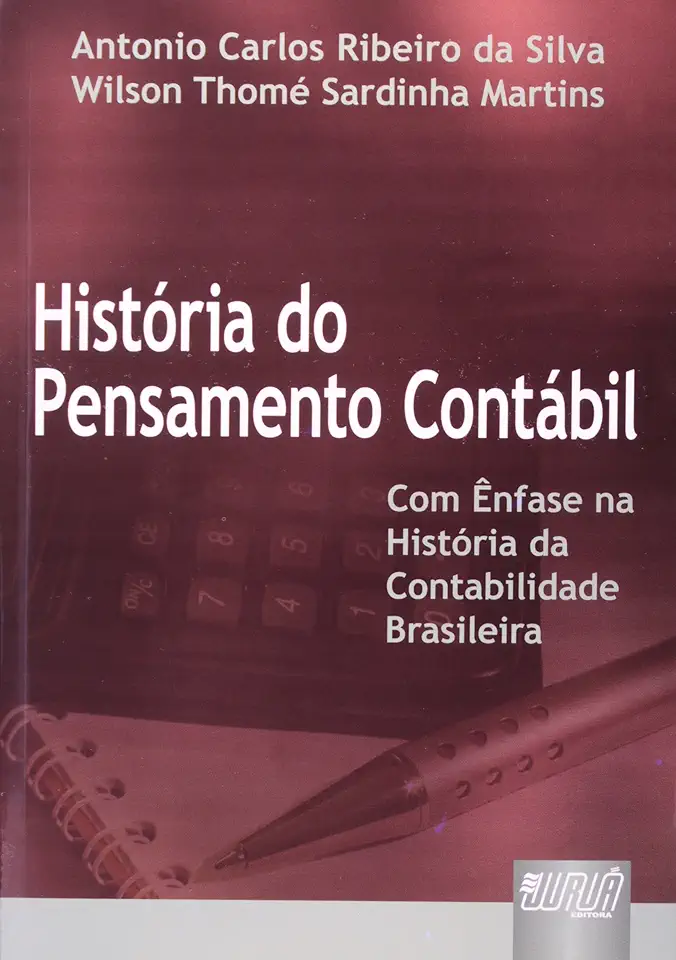
History of Accounting Thought - Antonio Carlos Ribeiro da Silva
History of Accounting Thought: A Comprehensive Guide to the Evolution of Accounting
Introduction
In the ever-evolving world of business and finance, understanding the history of accounting thought is crucial for gaining a deeper appreciation of the field's complexities and significance. This comprehensive guide, authored by Antonio Carlos Ribeiro da Silva, takes readers on an intellectual journey through the development of accounting thought, providing a profound understanding of the theories, concepts, and practices that have shaped the discipline over the centuries.
Ancient Origins and Early Developments
The book delves into the ancient origins of accounting, tracing its roots back to the early civilizations of Mesopotamia, Egypt, and Greece. It explores the rudimentary accounting practices employed in these ancient societies, highlighting the use of clay tablets, papyrus scrolls, and other rudimentary tools for recording financial transactions.
The Renaissance and the Rise of Double-Entry Bookkeeping
The Renaissance marked a pivotal period in the history of accounting thought, witnessing the emergence of double-entry bookkeeping. This revolutionary concept, attributed to the Italian mathematician Luca Pacioli, revolutionized the field by introducing a systematic method of recording and organizing financial data. The book provides a detailed explanation of double-entry bookkeeping, emphasizing its impact on the accuracy and transparency of financial reporting.
The Enlightenment and the Age of Reason
The Enlightenment era brought forth a wave of intellectual and scientific advancements, which profoundly influenced accounting thought. Philosophers and economists such as Adam Smith, David Ricardo, and John Stuart Mill contributed to the development of economic theories that had a profound impact on accounting practices. The book explores the interplay between economic thought and accounting, highlighting the emergence of cost accounting and the increasing focus on financial analysis.
The Industrial Revolution and the Rise of Modern Accounting
The Industrial Revolution ushered in a new era of economic growth and complexity, demanding more sophisticated accounting methods. The book examines the evolution of accounting during this period, focusing on the development of cost accounting systems, budgeting, and financial reporting practices. It also discusses the emergence of professional accounting organizations and the standardization of accounting principles.
The 20th Century and the Information Age
The 20th century witnessed remarkable advancements in technology and information systems, which had a transformative impact on accounting thought and practice. The book explores the rise of electronic data processing, the development of accounting software, and the increasing use of computers in financial reporting. It also examines the emergence of new accounting theories and frameworks, such as activity-based costing and fair value accounting.
Conclusion
"History of Accounting Thought" by Antonio Carlos Ribeiro da Silva is an indispensable resource for anyone seeking a comprehensive understanding of the evolution of accounting. Through its engaging narrative and meticulous research, the book provides a profound insight into the theories, concepts, and practices that have shaped the field over the centuries. Whether you are a student, a practitioner, or simply someone interested in the history of business and finance, this book is a must-read that will enrich your knowledge and deepen your appreciation for the fascinating world of accounting.
Enjoyed the summary? Discover all the details and take your reading to the next level — [click here to view the book on Amazon!]